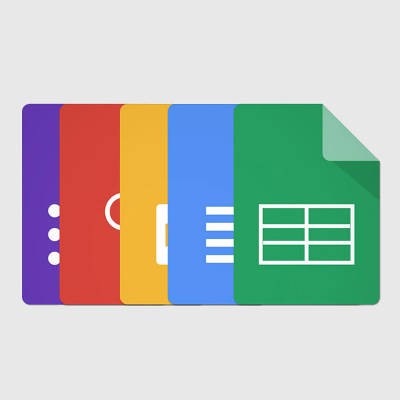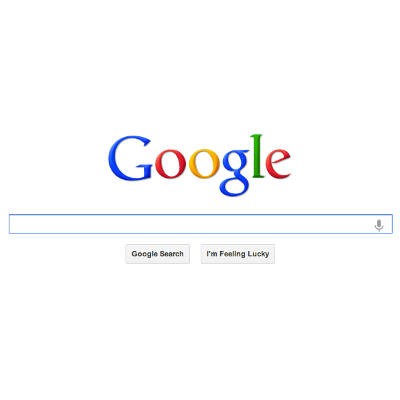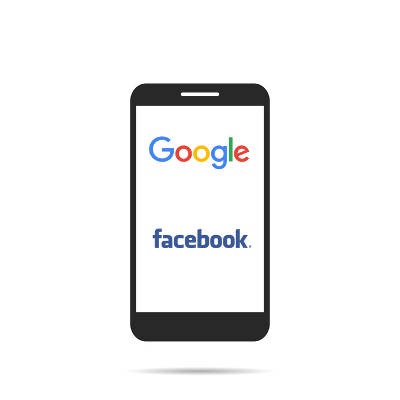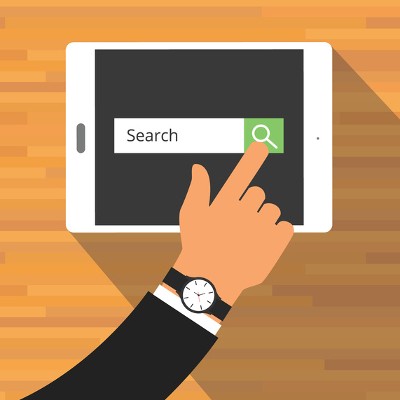Ferrum Technology Services Blog
Google’s Android line of smart devices have made their presence well-known in the business world. Google now offers a zero-touch enterprise solution for its Pixel-line mobile devices. The primary reason for this is that mobile devices are somewhat time-consuming to set up, especially on the business level. You can save time by pre-configuring these devices for your business to use using Pixel’s zero-touch solution.
The Internet is prone to change. We all know this and have experienced it firsthand. Even though we may understand this reality, it can still be rather shocking when we’re confronted with it. The latest statistics show us how the current changes of the Internet have huge implications about how we’ll all interact with the web moving forward, which may spell doom for doing “online business as usual.”
In the wake of a dangerous zero-day vulnerability found in Adobe Flash, which required that users either uninstall it or update to the latest version, it’s becoming increasingly apparent that the web needs to find a new way to support rich media integration. Now, Google plans on slowly phasing out Flash in its web browser, Google Chrome, and switch to HTML5 as the default rich media player.
 Does your organization use Google Apps for Business? It’s likely you use Google Contacts to store contacts. It’s an ideal tool for business professionals who are constantly on the move, but the real value that it presents is its instantaneous access to work contacts through Android devices. For this week’s tip, we’ll walk you through how to import and export your Google Contacts to a different Google, Outlook, or Apple account.
Does your organization use Google Apps for Business? It’s likely you use Google Contacts to store contacts. It’s an ideal tool for business professionals who are constantly on the move, but the real value that it presents is its instantaneous access to work contacts through Android devices. For this week’s tip, we’ll walk you through how to import and export your Google Contacts to a different Google, Outlook, or Apple account.
 Google is no stranger to voice-related technology. Android smartphones have long had voice-to-text capabilities. Google Now allows users to search the Internet, set alarms, add calendar entries, activate entertainment, and so much more, all with your voice. Now, you can add editing and writing documents in Google Docs to that list.
Google is no stranger to voice-related technology. Android smartphones have long had voice-to-text capabilities. Google Now allows users to search the Internet, set alarms, add calendar entries, activate entertainment, and so much more, all with your voice. Now, you can add editing and writing documents in Google Docs to that list.
 Google is much more than just a collection of desktop apps, a search engine, and a web browser. Google is a large company that’s continuously innovating with new and exciting technologies. One of these is Google Wallet, which allows for sharing cash and making money transfers online. What many users of Google Wallet forget is that, just like a debit or credit card, your Google Wallet card number can be stolen and used for fraudulent activity.
Google is much more than just a collection of desktop apps, a search engine, and a web browser. Google is a large company that’s continuously innovating with new and exciting technologies. One of these is Google Wallet, which allows for sharing cash and making money transfers online. What many users of Google Wallet forget is that, just like a debit or credit card, your Google Wallet card number can be stolen and used for fraudulent activity.
 It’s been over a year and a half since Microsoft gave up support on its extremely popular operating system, Windows XP. Without the necessary patches and security updates, Windows XP becomes a hazardous system to run for average users and business professionals. Now, things are about to get worse as Google cuts support for its popular web browser, Google Chrome, for Windows XP and several other older operating systems.
It’s been over a year and a half since Microsoft gave up support on its extremely popular operating system, Windows XP. Without the necessary patches and security updates, Windows XP becomes a hazardous system to run for average users and business professionals. Now, things are about to get worse as Google cuts support for its popular web browser, Google Chrome, for Windows XP and several other older operating systems.
 If your business uses Gmail as its preferred email client, then you know that it’s a great way to keep communications running smoothly. Sometimes, however, a message might fall through the cracks, and you’ll need to locate it in order to acquire certain information. Gmail has made it easy to locate lost messages with their search feature.
If your business uses Gmail as its preferred email client, then you know that it’s a great way to keep communications running smoothly. Sometimes, however, a message might fall through the cracks, and you’ll need to locate it in order to acquire certain information. Gmail has made it easy to locate lost messages with their search feature.
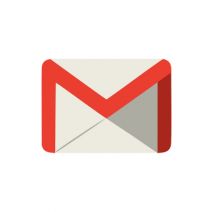 Have you ever felt like you shouldn’t have sent that angry email? Do you second-guess yourself right before sending someone a stern talking-to? With Gmail’s new Undo Send feature, you have the opportunity to take back words that might not have been deserved, or simple mistakes that were meant for someone else. You have to think on your feet, though; the clock is ticking down every second you waste.
Have you ever felt like you shouldn’t have sent that angry email? Do you second-guess yourself right before sending someone a stern talking-to? With Gmail’s new Undo Send feature, you have the opportunity to take back words that might not have been deserved, or simple mistakes that were meant for someone else. You have to think on your feet, though; the clock is ticking down every second you waste.
 As the world’s most popular search engine, Google has been known as an innovator for a long time. Google’s worldwide popularity has even turned its name into a verb: “to google,” or to search for something using Google. Despite its rather prestigious reputation, the developers at Google still know how to have a good time, as evidenced by their wide array of hidden Easter eggs.
As the world’s most popular search engine, Google has been known as an innovator for a long time. Google’s worldwide popularity has even turned its name into a verb: “to google,” or to search for something using Google. Despite its rather prestigious reputation, the developers at Google still know how to have a good time, as evidenced by their wide array of hidden Easter eggs.
 Microsoft’s Internet Explorer is one of the most widely used web browsers, despite the fact that it has a tendency to crash from time to time. In order to improve the product and prevent future bugs, glitches, and crashes, IE creates an error report after every crash. Most of these reports go unsent, or so Microsoft thought.
Microsoft’s Internet Explorer is one of the most widely used web browsers, despite the fact that it has a tendency to crash from time to time. In order to improve the product and prevent future bugs, glitches, and crashes, IE creates an error report after every crash. Most of these reports go unsent, or so Microsoft thought.
 Mobile devices like Google's Chromebook are designed with the casual computer user in mind. Equipped with Chrome OS, some people mock the device calling it, "Nothing more than a browser with a keyboard." Granted, a Chromebook can't come close to doing what a "real" computer can do, but if you know how to use it, the device can be much more than a glorified browser.
Mobile devices like Google's Chromebook are designed with the casual computer user in mind. Equipped with Chrome OS, some people mock the device calling it, "Nothing more than a browser with a keyboard." Granted, a Chromebook can't come close to doing what a "real" computer can do, but if you know how to use it, the device can be much more than a glorified browser.
 Wearable technology is all the rage these days. For users that are waiting patiently for the yet-to-be-released Google Glass, there are plenty of other options on the market that have moved beyond the proof of concept to grace retail store shelves. Several of the top mobile device manufacturers have released, or will release in 2014, products designed to seamlessly integrate into a user's daily routine. With Glass on the horizon and the newly announced Android Wear, Google is taking its future tech to your body.
Wearable technology is all the rage these days. For users that are waiting patiently for the yet-to-be-released Google Glass, there are plenty of other options on the market that have moved beyond the proof of concept to grace retail store shelves. Several of the top mobile device manufacturers have released, or will release in 2014, products designed to seamlessly integrate into a user's daily routine. With Glass on the horizon and the newly announced Android Wear, Google is taking its future tech to your body.
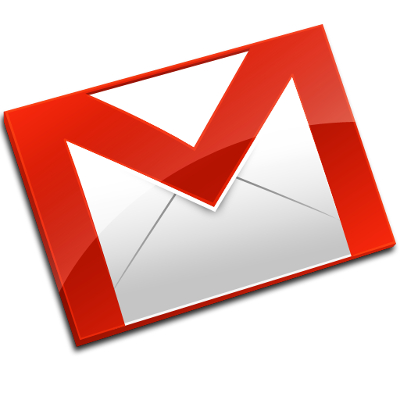 One of the biggest time wasters we all face is sorting through our email inbox. This is a tedious task made worse because you have to sort through emails from the same sources every day, like newsletters and social media updates. Here's a tip to help you better organize your incoming Gmail messages.
One of the biggest time wasters we all face is sorting through our email inbox. This is a tedious task made worse because you have to sort through emails from the same sources every day, like newsletters and social media updates. Here's a tip to help you better organize your incoming Gmail messages.
 It's a rare occasion that a company grows to have as much prowess over multiple industries as Google has. Since their launch in 1998, their mission has been "to organize the world's information and make it universally accessible and useful." By launching products and services centered on this purpose, Google has grown to set the world's standard of information and how it's managed. What can your business learn from them?
It's a rare occasion that a company grows to have as much prowess over multiple industries as Google has. Since their launch in 1998, their mission has been "to organize the world's information and make it universally accessible and useful." By launching products and services centered on this purpose, Google has grown to set the world's standard of information and how it's managed. What can your business learn from them?
 Previously, we wrote the blog post, "The Digital Payment War, Round 1", where we looked at the differences between the old school PayPal and the new school Square Cash methods of digital payment. While we didn't officially declare a winner, Google Wallet and Coin are a couple more contenders to our "Best Online Digital Payment Method Ever in History" award.
Previously, we wrote the blog post, "The Digital Payment War, Round 1", where we looked at the differences between the old school PayPal and the new school Square Cash methods of digital payment. While we didn't officially declare a winner, Google Wallet and Coin are a couple more contenders to our "Best Online Digital Payment Method Ever in History" award.

